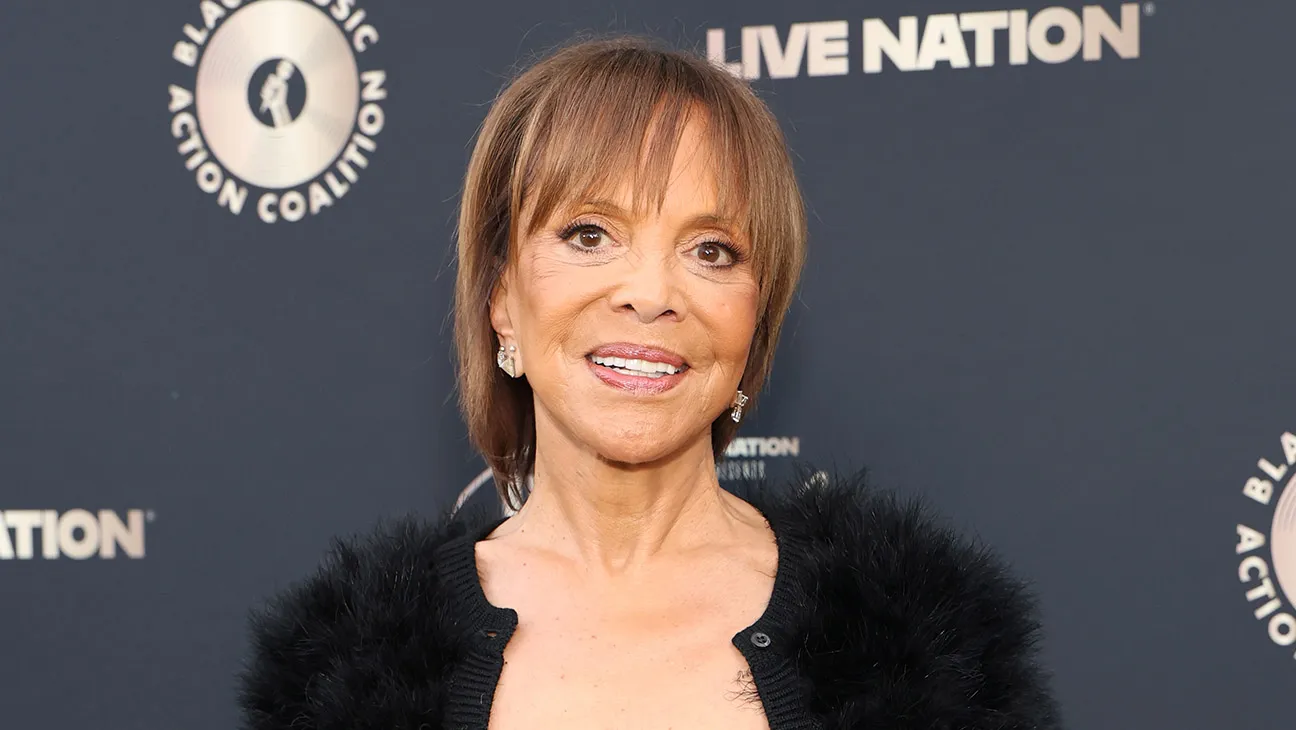
Sylvia Rhone, the veteran chair and CEO of Sony Music’s Epic Records, is stepping down from the company, a source familiar with the matter confirms to The Hollywood Reporter.
Rhone was first named chair and CEO of the label back in 2019, after a five year stint as Epic’s president starting in 2014. In her tenure at Epic, she oversaw one of the most influential rosters in hip-hop, working with superstars including Travis Scott, 21 Savage, DJ Khaled Future, as well as with pop stars like Meghan Trainor, Madison Beer and Camila Cabello among many more.
Industry insiders have speculated for years when Rhone would eventually step down from her post given that she was one of the oldest major label CEOs, though as of now, no successor has been named.
Rhone has long been lauded as a trailblazing figure in the music business, the first woman and the first Black women to be named CEO of a major record label. And while there had been a resurgence of women CEOs across the major record labels in the past several years, she was the only woman CEO left before today’s departure.
Prior to Sony, Rhone ran Warner Music Group’s Elektra Entertainment Group, and in 2004 she was named the president of Universal Motown Records. At Motown, she worked with acts including Stevie Wonder, Erykah Badu and Akon, as well as with Lil Wayne’s Cash Money Records, which was also home to the likes of Nicki Minaj and Drake.
In an internal memo obtained by THR, Rhone looked back on her decades-long career, calling her tenure at Epic “an extraordinary journey” and noting this was the third time in her career she was the first woman and Black person to serve as a major label CEO.
“And today, I am moving on from this historic role at Epic and I’m very excited about the future,” Rhone said. “I’ve always been surrounded by excellent teams, but our current one at Epic is extraordinary. Spanning multiple generations, our team understands music’s history, finds meaning in complex data, and anticipates emerging trends. From Travis Scott, Future and 21 Savage, to Meghan Trainor, Tyla and Madison Beer, Zara Larsson to Giveon and Mariah The Scientist, Q-Tip to Andre 3000 and the late, great Ozzy Osbourne… Epic artists thrive through bespoke campaigns that honor their unique voices and goals.”
In a note of his own, Sony Music Group chairman Rob Stringer, who appointed Rhone to her CEO role back in 2019, said that “it’s been our honor to work with a true icon,” calling it “our collective responsibility to continue to build on her work at Epic Records.”
“In an industry defined by its constant evolution, Sylvia has adapted and embraced change, time and time again,” Stringer wrote. “Her journey is more than just a list of accomplishments. She is a trailblazing executive with a distinguished background and unwavering commitment to supporting artists. She has made history including becoming the first woman to be named Chair of a major record company and guided some of the biggest artists in our business across every genre. Sylvia’s influence is rooted in an understanding of music’s power to connect with people.”
In her memo, Rhone thanked Stringer, longtime music industry executive Doug Morris, her team of Epic executives, her late parents Marie and Bob Rhone and her daughter Quinn.
“I have worked in our industry since vinyl ruled, and women were rarely if ever in line for C-level or even vice-presidential roles,” Rhone said. “I am proud of my achievements, and of my commitment to those who take inspiration from them. The many individual honors I’ve received — from Billboard, Fortune Magazine’s Most Powerful Women, Essence, Variety, Ms. Magazine’s Woman of the Year, and the recent honorary doctorate from Berklee College of Music — serve as grace notes on my years of dedication. But they pale beside what we’ve all built together. They pale beside the glory of our musical culture.”
Read Rhone’s full memo below:
To My Sony Music Family,
It’s been an extraordinary journey: eleven years since my promotion to President of Epic Records and six years since my appointment as Chairwoman and CEO. This role at Epic represents the third time in my career that I’ve been the first woman and first Black person to serve as CEO of a major record label owned by a Fortune 500 company.
And today, I am moving on from this historic role at Epic and I’m very excited about the future.
I’ve always been surrounded by excellent teams, but our current one at Epic is extraordinary. Spanning multiple generations, our team understands music’s history, finds meaning in complex data, and anticipates emerging trends. From Travis Scott, Future and 21 Savage, to Meghan Trainor, Tyla and Madison Beer, Zara Larsson to Giveon and Mariah The Scientist, Q-Tip to Andre 3000 and the late, great Ozzy Osbourne…Epic artists thrive through bespoke campaigns that honor their unique voices and goals. While helping artists maintain authentic fan connections, our team guides them through partnerships in video, fashion, gaming, and content innovation. We’re proud of leading Sony Music’s 2020 “Your Voice, Your Power, Your Vote” campaign and fostering a workplace culture that reflects our values: 62% women and 57% people of color. From day one, we set out to build something special at Epic — and we have.
This moment of my transition invites reflection on a journey that has been wide-ranging in its scope and impact.
Following my graduation from The Wharton School, I started as a secretary at Buddha Records and after working my way up through radio promotions, I was privileged to be appointed SVP of Black Music at Atlantic Records. Those times feel like yesterday, working with Roberta Flack, Donnie Hathaway, En Vogue, LeVert, Brandy, Adina Howard, Troop, DAS EFX, Snow, MC Lyte, Kwamé, Miki Howard, Gerald Albright, The System and Ice Cube’s Lynch Mob and Yo-Yo. Through our Ruthless Records deal, we also released The D.O.C., JJ Fad, Michel’le, and Easy-E.
In July 1994, I was appointed Chairwoman of Elektra Records, where we orchestrated a cultural renaissance that still resonates today. There, we became guardians of musical diversity, nurturing the power of AC/DC and Metallica alongside the genius of Missy Elliott and Busta Rhymes. From Pantera’s intensity to Phish’s improvisational spirit, from Tracy Chapman’s truths and Anita Baker’s soul to Tamia’s powerful vocals — each artist flourished on their own frequency. Third Eye Blind, Yolanda Adams, Silk, Ol’ Dirty Bastard, Gerald LeVert, Keith Sweat, Natalie Merchant, The Cure, Björk, Staind, Better Than Ezra, The Afghan Whigs, and Jason Mraz all found their home in our musical family, creating moments that transcended mere entertainment.
Then came my chapter at Motown, where the label’s iconic history and its future converged under my leadership as Chairwoman and CEO. It was an honor to record Stevie Wonder’s last full-length studio album while simultaneously collaborating with artists like Nelly, Erykah Badu, Kid Cudi, and Akon. We also extended hip-hop’s global reach by distributing Cash Money Records’ roster — elevating Baby, Lil Wayne, Nicki Minaj, and Drake.
I am blessed to have worked with some of the most brilliant and influential artists in the history of recorded music. And I’ve discovered this: when we channel our strength and creativity in service of a vision, and collaborate with artists who do the same, we create music that reflects our world, questions our assumptions, and uplifts our spirits. This is a kind of magic, a deeply human connection. Right now, when music’s DNA is being reimagined, when artists face existential challenges, and when all of us are building the future in real time, there is little that is more profound.
Looking back on my Epic era fills me with great pride. To my team of creative champions, you now hold the reins, and I know your best work lies ahead. I’m grateful for Zeke Lewis, Rick Sackheim, Sandra Aflorei, Tyler Pittman, John Shoup, Dave Bell, Lisa Kasha, Shannon Mingal, Margeaux Watson, Justin Duran, Chelsea Donnarumma, Brooke Marcimo, Mez Tara, Gina Harrell, Melissa Victor, Traci Adams, Scott Dimig, Dontay Thompson, Jennifer Goicoechea, Patrick Afeku, John Kirkpatrick, Michael Petullo, Max Sholl, Hector Rosario and the countless other executives who made Epic Records home.
I thank my daughter Quinn for her unconditional love and my late parents Marie and Bob Rhone for their heroic support. And I am forever grateful for my prior teammates from over the years. Not only did we work great music, but we also created an amazing network of advocacy and goodwill! Thanks to Rob Stringer for his trust and camaraderie and to Doug Morris for empowering me to shatter the glass ceiling.
I have worked in our industry since vinyl ruled, and women were rarely if ever in line for C-level or even vice-presidential roles. I am proud of my achievements, and of my commitment to those who take inspiration from them. The many individual honors I’ve received — from Billboard, Fortune Magazine’s Most Powerful Women, Essence, Variety, Ms. Magazine’s Woman of the Year, and the recent honorary doctorate from Berklee College of Music — serve as grace notes on my years of dedication. But they pale beside what we’ve all built together. They pale beside the glory of our musical culture.



